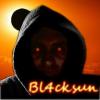
Posted
Hi everyone,
Glad to join the group and very excited about this software. I'd like to share with you my first composition ever with Synfire Pro and with only a few hours of usage and no previous HN2 experience as well!...
(https://w.soundcloud.com/player/?url=https%3A//api.soundcloud.com/track…)
I'm surprised with the results. But before I pat myself on the back and congratulate me with the achievements of a well spent Saturday, I'd like to leave a question that has been surfaced but I believe not answered.
I've used a couple of midi songs to get to this result, what I did was:
1 - Import some midi songs and let Synfire analyze it more or less automatically, although some manual tweaking on the import was advised for some tracks/songs
2 - Import directly to library and collected "phrase snippets"
3 - Edited some of the phrases to make them sound "better"
4 - then I started looking for phrases that caught my ears. At this point I was not really aware anymore of connection of phrases to original songs.
5 - And then I combined phrases in a standar intro/verse/chorus/verse/chorus/ending fashion with a totally new progression, that pretty much took me to the end result, after some final figure editing and additional parameter tweaking.
Now I'm pretty sure that my song is "new" but still I can imagine someone saying, "Hey that sounds just like this or that". Since I was using literally parts of melody and "solo snippets" and "riffs", the question of the rights is (or may be?) an acceptable one.
Can we assume that if Synfire analyzes it, than it is essentially not the same sequence of notes, or this assumption is too fragile? For instance, If I'm using let's say some Beatles songs, I may be confident that what I'm producing is "new", because I know all their songs.
But what if, as it was the case in this example, I'm not at all familiar with the genre? What should be the acceptable precautions to take in order not to take chances...
I'm of course thinking in the possibility of you wanting to release the composition as "your" composition.
Anyway, I would really like to hear from the forum on this, I believe, important issue.
Regards,
Carlos
Mon, 2014-11-03 - 21:54 Permalink
Hi Carlos,
Thank you for posting this interesting question.
The answer isn't that easy. It doesn't matter HOW you composed a song and what raw material and fragments you used to get there. What matters is what it sounds like when you finished it. The RESULT matters.
If an average audience recognizes a particular known song, you might have a problem, even if you composed the song entirely yourself from scratch, note by note.
There is no copyright on rhythm and chords. Only on melodies. If you changed the progression and the rhythm of the melody, you almost certainly got a new and different thing. If you split it up into pieces and assembled them in different order, you get even farther away from the original. If the melody is for vocals, different lyrics will also add to the originality of your song to some extent (words sound different, have a different rhythm).
But as said, there is no safe method to measure this. Unless it's an outright clone, this is very subjective. The similarities need to be very obvious and you probably also need to be successful with your song, before someone might be motivated to sue you.
I'm not a lawyer. Maybe others can share their experiences too?
Tue, 2014-11-04 - 00:40 Permalink
The link is fine for me, perhaps it has been restored now?
Anyway, I wouldn't worry about it too much. As Andre stated, only melody is subject to copyright, nothing else.
When I first started using Synfire, I made the mistake of trying to reverse-engineer Yesterday by The Beatles and it was impossible to re-create any of it (especially the melody) without applying a bespoke interpretation to virtually every single phrase.
I say 'mistake' but it was a useful excersise for me at the time, trying to understand how Synfire worked and wondering how on earth the song could have been written in Synfire if it had been available back then.
But the point is, one you've dragged a few phrases into a library, moved them about, stretched them, changed the rhythm, flipped and reversed them, etc. it's highly unlikely they will sound anything like the original. Even if you didn't do any of that, they would probably still sound quite different anyway.
Even without Synfire, you could probably take the melody of something well known like Dancing Queen by ABBA, change the rhythm and tempo, and turn it into an orchestral arrangement, and very few people would notice it until you pointed it out to them.
One of the (many) beauties of Synfire is that it's designed to create original music that is yours, and yours alone.
Sat, 2014-11-08 - 23:09 Permalink
Hi Carlos:
Congratulations.. I don't hear anything that sounds stolen, but then there is also a lot of music I've never hears.
Chord progressions are NOT copyrightable.. A melody of more than 4 notes, can be cause for infringement . But you will find that happens with regularity.. There's only 12 notes, and millions of melodies..
The bigger issue, is who is going to take the time to sue you.. If you don't have money .. It's pointless to spend 10's and 10's of thousands of dollars, prosecuting you..
If on the other hand if you have a major hit, and are making lots of royalties, (you're song gets used in a commercial), people might crawl out of the woodwork. Now a days, you see major copyright infringement on youtube alone.. It's just not worth prosecuting.
I started writing songs when I was ten.. I was about 14 when the Beatles came out.. Like Petearch, I took a Beatles song. I reversed the chords of "She Loves You" put on a new melody and wrote a great song.. No one ever got, it but loved it cause it sounded like something the Beatles might have written.. It always drew a reaction from the crowd when our band played it. The trick is can you get away with it.
A huge case many years ago, was George Harrison writing "My sweet Lord".. writers claimed he stold the idea from "he's so fine" by the Chiffons.. This was actually about sucking money out of a very successful musician.. In my opinion, it had very little bearing. Harrison also stold the complete first line of the song "Something" from a James Taylor album, who was on Apple at the time.. I imagine a back room deal was made...
John Lennon lifted the phrases, "here come old flat top, joo joo eyeballs." from a song published by Maurice Levy (tin pan alley).. Instead of paying a fine, He did an album that contained several Tin pan alley songs.. Everybody won in that case.. ''
The Rolling Stones had a great song, called "Has Anybody Seen my Baby".. Keith Richards was concerned it reminded him of a K.D. Lang song, so they gave her writing credit.. Generous on their part.. I never saw any connection.. I'm sure Ms. Lang didn't mind either.
In any event all of the above depends on the astuteness of your lawyer should you need one.. Again I wouldn't worry unless you start making a lot of $$$.. and that just isn't that common in the music business, any more, cause there are so many blatent levels of infringement going on everywhere,, it's like the wild west..
I would not worry about it.. John Legend at the start of his careercompletely stold the music from a song called "Spooky" from the Classics IV, a band from the 60's.. In fact Legend stold the music or stold the 'feel' of lot of 60' s songs for a while. That plus his name "Legend" got to make him a legend. There was an instant 'familiarity' about him..
Since he was on Sony records and they hold the publishing for TONS and TONS of song, it was a non issue..
Legend's bold approach almost instantly shot him to stardom, people responded with like 'Oh yeah, I remember him', when we really didn't.. It was the name 'Legend' and the musical familiarity of his songs. and a LOT of Sony $$$ to make him famous. I'm not putting Legend down,, in fact I kind of like him.. But I think that was a very calculated move.
Indeed.. having your song strongly remind you of a song you like, often works to your advantage. You have a build in audience.
Intellectual Property is an issue Cognitone might have to face someday, and other companies like it.. I made several SFP Libraries of phrases made by a famous folk artist.. I removed their names from the file names to thwart 'search bots' and uploaded them here.. The truth is In SFP it only takes a few key strokes to make something completely unrecognizable.. If it bothers you, (you're stealing something), process it a bit more.. (I had that qualm a few times too).. Better yet.. play the Midi melody and mutate it yourself before using in SFP..
It's a well known fact, humans learn well by rote.. They imitate, copy something. Then their brains analyze it, and create processes to go on and create new processes from what they have gleaned.
Synfire does what a lot of musicians do in their heads.. They take an idea from somewhere else and modify it to fit their use.. Ideas have been borrowed, stolen, and modified since we've been on the planet.. Even nature itself, steals from itself.. The essence of man.. brain, digestive system, circulatory system, lungs, etc.. are present in most forms of life.. It is the most efficent design to be used, modified and used again.
The same goes for ideas.. What if someone 'copyrighted' the alphabet, and charged everyone every time they used it? The question of intellectual property is a hard one.. If we compartmentalize, stamp, and make it property that has to be bought, we curtail the development of humanity.. Linux the computer language is like comman property, no one exactly 'owns it'.. People may use it and add to it. It benefits al l mankind..
Somewhat the same happens in music.. Their are certain harmonies that work best, their are compostional rules (whether we are aware of them or not) that dictate whether something will be pleasing to someone. There are certain scales and modes that can evoke a predicted emotion from people.. I remember as a child discovering 'minor' chords when playing the organ. I fell in love with them. My mom would yell at me not to use so many.. Later I discovered strings playing minor notes and certain chord progressions, always had a strong emotional impact on the audience.
In one way it was disheartening. I looked behind the Wizard of Oz's curtain.. And some of the magic of music disappeared fo me.. It was a little less wonderous, once I began to see formulas and patterns that had determined results. But then it became a powerful tool.. I could control people's emotions to a degree, by what I played and how I arranged it. I recognized it songs I loved..
Fifty years later, the Rightous Brothers "Unchained Melody" can still bring tears to my eyes. That is POWER.. The Beachboys "Good Vibrations", can still make the hairs on my arms go up (not every time now - but for the first 20 years).. So when you are working with SFP you 'harvest' chord progressions and phrases, you are creating a set of tools to use that have the possibility to create great music. Of course the greatest computer of all time for music and everything else is the human brain.. The combination of your talents, musical knowledge, and the use of programs like SFP, and DAWS open windows of opportunity, we didn't have before.
So unless you play the song and a lot of people say you 'stold that from'.. I wouldn't worry... Once as a test, I took the chords from a Chuck Berry song, and another from a George Michaels song.. No one ever got the Chuck Berry song..
Everyone loved the George Michaels. I even had the same instruments, chords and feel, melody was completely different.. People loved it, sounded familar to them, but they never realized where it came from..
Create, and have fun.. (took 2 cups of coffee to get this out.. one more and I can go write a song)
Informatively and amusingly yours
Mark
PS.. I like your first attempt - a hell of a lot better than my first SFP attempt.
Mon, 2014-11-10 - 12:49 Permalink
Contrary to what is widely assumed, it is not generally prohibited to use foreign material in your own compositions. Virtually all copyright laws know the concept of "fair use" that permits limited use of copyrighted material without acquiring permission from the rights holders under certain circumstances. One of the key aspects here is the quantity or percentage of the original copyrighted work that has been imported into the new work and the relation to the amount of your own work. And at least under German law there is also a special protection for melodies. So you should at least make sure that the melody is not recognized. What, however, "a recognizable melody" means, can only be clarified in a court hearing in a particular case.
To avoid all these problems, you should consider the following points when dealing with Synfire:
- Use only small snippets of songs.
- Mix snippets of several sources.
- If you are using several snippets of one song, put them together in a different order, so that the original context is no longer recognizable.
- Avoid the use of anything that looks like melody.
If you absolutely want to use a specific melody, Synfire offers you various methods to transform that melody into something new. Try, for example, to change the rhythm. You could try to apply the rhythm of a different melody (command Paste Rhythm). You can change the character of the melody by a modified harmonic progression. You can rearrange the notes of individual sections of the melody with transformation commands such as Inversion or Retrograde. You can try out the effect of the Parameter "Variation". And so on. You can be pretty sure that after a few operations of this kind, the original melody will be no longer recognizable even for the person who composed it. And it may be that it will sound even more interesting than the original.
Mon, 2014-11-10 - 23:20 Permalink
Hi Juergen. Your suggestions are excellent
The term 'fair use' is a term lawyers love to play with because of its' vagueness.. They can rack up hours and days of 'billable' time to their clients bouncing this ball back and forth .. That is open to interpretation, and the financial resources and accumen of the prosecuting party.. Fair use was first reserved for reviews, a not for profit college putting on a play etc. to show an example..
For instance Berklee online courses and Coursera, (on advice from their lawyers) never use copywritten material unless it is out of public domain, (used to 70 years, I think it's longer now). What they will do is post a link to youtube or some other site. So if the lawyers come knocking - they are protected..
Fair use and copyright protection also might vary from country to country.. For instance China (with it's pendent for knockoffs) generally disregards copyright.. It is a tricky.
But the final point is, what are you doing with your 'maybe stolen notes'.. If you've uploaded it to youtube, or somewhere else, usually the worse scenarieo is it is removed by the 'millenium digital act'.. I've seen that a few times.
Several years ago Youtube was forced to remove a lot of uploads of commercial recordings.. There was even a ban of publishing lyrics to songs.. But I seen tons of commercial albums up on Youtube now. No one bothers to order them down.
Dj's are at the head of this with their remixes.. Cause they are taking the actual recording, screwing around with it and releasing it, playing it in clubs, getting DJ copies pressed.. Years ago, I worked for Disconet, the first DJ remix service. I did a disco version of 'Over the Rainbow'..
I made a mix with the actual voices of Dorothy and company at beginning. I naively called MGM (or who ever owned it) to get permission or license it from them. They told me in no uncertain terms, I could not do it, and they would come and prosecute me.. The song got released on Disconet, Hot Tracks (two DJ labels) and Loading Bay in England.. Hot tracks said they didn't care, they included the mix with the actual dialog at beginning.. It was a huge club hit here and in Europe. I never heard from MGM..
When masses and masses of people start breaking the law,, the laws at some point get rewritten.. The act of downloading pirated commercial music is such a point.. England just passed a law where you will get four written notices to desist.. Then after that nothing happens.. It's just too expensive for record companies to to prosecute.. So now income is more focused on live shows and merchandising physical objects, which can't be downloaded.
Back 10 and more years ago, you could if persistant enought, find a lot of midi files to well known songs and they were free.. Many of those sites, have been forced to take down files, or close.. There are a few that are still open.. Many sell midi files (be careful quality can range form excellent to poor).. I'm not sure if all of these sites are paying royalties.
I've purchased sheet music of songs out of public domain, where the publishers altered a couple of melody notes, to avoid lawsuits, slapped their arrangement copyright on it, to cover themselves from possible lawsuits and a possible tool to sue otheres who inadvertantly used their version not noticing a few melody notes were changed.
As long as you manipulate the melody enough,, it shouldn't be a worry.. If you were Kane West or Beyonce, and had questionable melodies, labels might come after you. but not us 'small fish'..
Synfire Pro, Rapid Composer and other software of this type are chipping away at the boundaries of music knowledge and ideas.. This may eventually evoke a response.. Not any time soon.
Sat, 2014-11-29 - 23:55 Permalink
I know this thread is a little old now but for one hell of an example of someone breaking copywrite, check this out:
Not sure if they paid their dues or not but they sure did make some cash out of it.. The guy that made this video must have had inside information or really good ear and music knowledge






